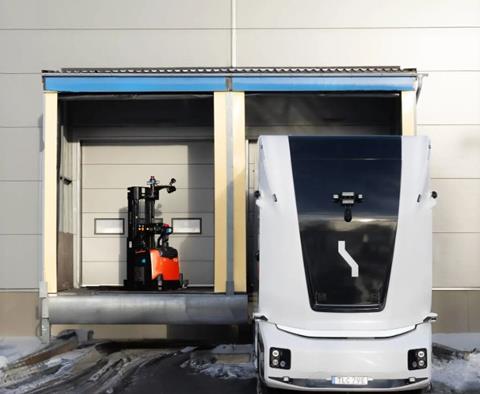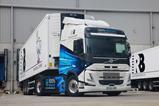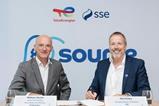The logistics industry is currently undergoing transformations driven by digitalisation, electrification, and automation. These changes offer promising solutions to numerous challenges faced by the sector. To fully leverage these advancements, it’s crucial to integrate all subsystems effectively. The SCALE project is a new initiative focused on achieving this integration.

SCALE (Supply Chain Automation of Loading/unloading for increased Efficiency) is a research and innovation project co-funded by the Swedish Energy Agency, aimed at promoting resource-efficient supply chains through innovative approaches. The project involves six partners: Chalmers University of Technology, University of Gothenburg, Einride, SKF, Toyota Material Handling Europe, and MariTerm. Together, they are working collaboratively to design and validate a comprehensive solution that streamlines, electrifies, and automates the processes of loading, unloading, and moving goods.
Each partner in the SCALE project plays a specific role. Chalmers University of Technology and the University of Gothenburg lead the project, providing comprehensive perspectives and deep system understanding. SKF represents the use case aspect, addressing real customer needs through tests conducted at its site. Einride and Toyota Material Handling Europe contribute their expertise in autonomous vehicles, while MariTerm offers solutions for autonomous load securing.
Through the SCALE project, valuable insights have been gained regarding the benefits and challenges of automated loading and unloading. These benefits include strengthening the business case for electric and autonomous transport, enhancing operational efficiency, and improving safety for workers by reducing material handling risks and goods damage.
To realize the efficiency gains of automation fully, it’s essential to adopt a holistic perspective that encompasses all aspects of the supply chain. This approach helps avoid “automation islands,” where isolated processes are automated without considering the entire flow.
In addition to automation, the SCALE project actively contributes to the electrification and decarbonisation of the logistics industry. By implementing automated flows for loading and unloading, including electric heavy-duty vehicles, the project aims to increase hardware utilisation rates, thereby supporting cost-effective electric operations.
The project also focuses on addressing challenges such as information management and optimising production and transportation planning, necessitating a digital-first approach. While automation is effective in managing repetitive tasks, there is room for improvement in handling non-standardised scenarios.


















